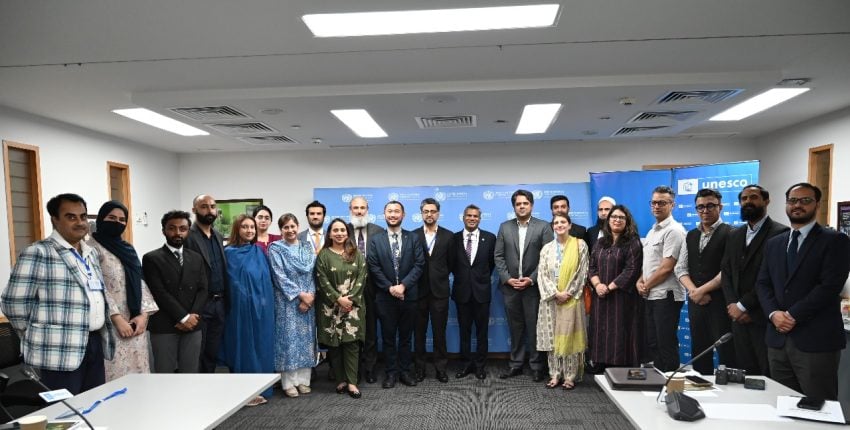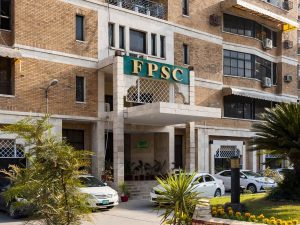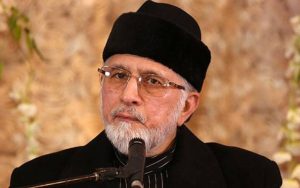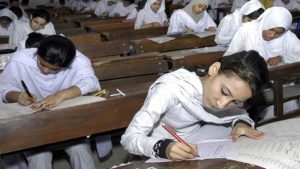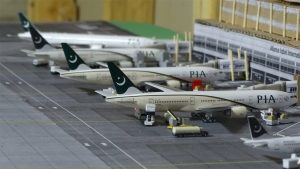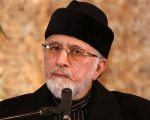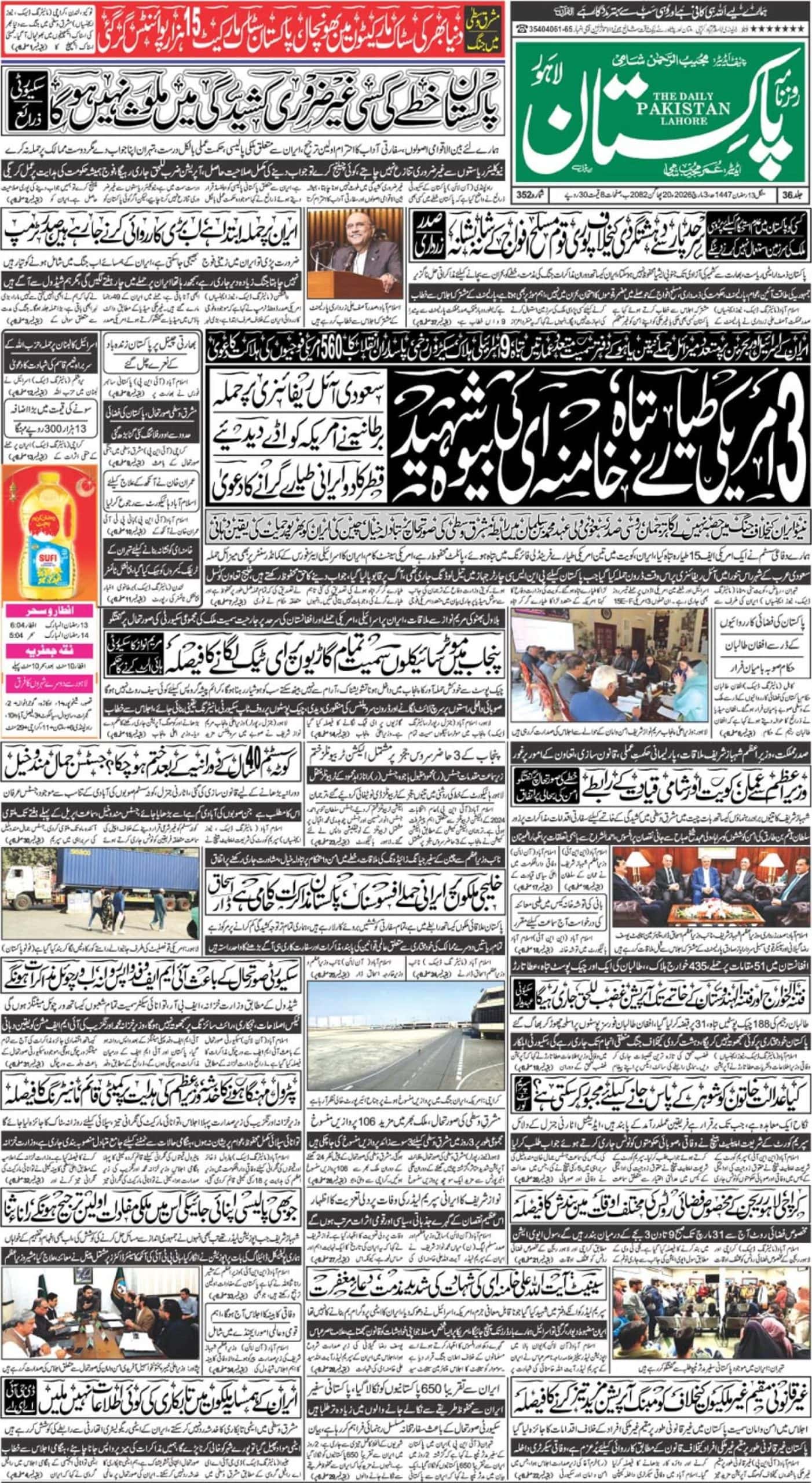ISLAMABAD – To promote the ethical and inclusive development of Artificial Intelligence (AI) in Pakistan, UNESCO organised a multi-stakeholder dialogue that brought together over 25 experts and representatives from key sectors, including relevant government ministries, civil society, academia, and the media.
This dialogue focused on the global commemoration of World Press Freedom Day 2025, emphasising the important connection between AI, media freedom, and journalist rights.
Pakistan’s draft national AI policy revolves around five strategic pillars – AI Innovation Ecosystem, Awareness & Readiness, Secure AI Ecosystem, Transformation & Evolution, and International Cooperation and Collaboration to guide the country’s adoption of AI in a responsible and transformative manner. This UNESCO-led multi-stakeholder dialogue centred on the Secure AI Ecosystem pillar, aspiring to harness emerging technologies to foster a secure, transparent, and accountable AI ecosystem, while ensuring ethical integrity, inclusivity, and the protection of digital rights for all. Furthermore, it underscored the need for a human-centred and rights-based approach to AI development that is also at the core of UNESCO’s global Recommendation on the Ethics of Artificial Intelligence, adopted in 2021.
Participants engaged in interactive discussions around the five strategic pillars of Pakistan’s draft national AI policy. They identified practical policy gaps and collectively proposed a set of preliminary policy recommendations. These discussions emphasised the necessity for AI systems in Pakistan to be transparent, inclusive, and particularly sensitive to the rights of vulnerable communities. Stakeholders further called for enhanced inter-sectoral coordination and stronger institutional capacity to ensure policy coherence and effective implementation.
During the dialogue, Afke Bootsman, the Head of the United Nations Resident Coordinator’s Office in Pakistan, emphasized the importance of ensuring that AI’s transformative potential is guided by the principles of inclusion, equity, and human rights. She further highlighted that the UN reflects a strong commitment to leaving no one behind in the digital era.
This initiative came at a critical moment in Pakistan’s digital transformation journey,” explained Dr. Aneel Salman, a renowned policy and governance expert. He further stated, “A well-crafted policy is essential to harness the transformative power of AI for inclusive growth, safeguard democratic values, and build lasting trust in institutions.”
Mr. Antony Kar Hung Tam, Officer-in-Charge of the UNESCO Office in Pakistan, reiterated UNESCO’s long-term support, “The insights gathered through today’s dialogue will play a critical role in advancing an ethical, inclusive, and sustainable AI policy for Pakistan. UNESCO stands ready to support national efforts to ensure that AI serves as the public good, promotes human rights, and accelerates progress towards the Sustainable Development Goals.”
UNESCO’s support underscores the importance of international ethical standards in guiding Pakistan’s digital transformation. It affirms the value of a multi-stakeholder approach to build a resilient, rights-respecting AI ecosystem.
Mr. Hamza Khan Swati, National Professional Officer, Communication and Information of the UNESCO Office in Pakistan, linked the dialogue to the theme of this year’s World Press Freedom Day, and spotlighted on how AI can both empower and endanger media freedom, “UNESCO is committed to ensuring that AI development is human-centered, promotes transparency and accountability, and prioritizes ethical considerations especially with regards to media independence and development.”
The dialogue’s outcomes will feed into the ongoing consultations around the five strategic pillars of the draft national AI policy. The preliminary policy recommendations will serve as a foundation for refining the policy draft and guiding the implementation strategies that align with Pakistan’s broader digital governance goals.

